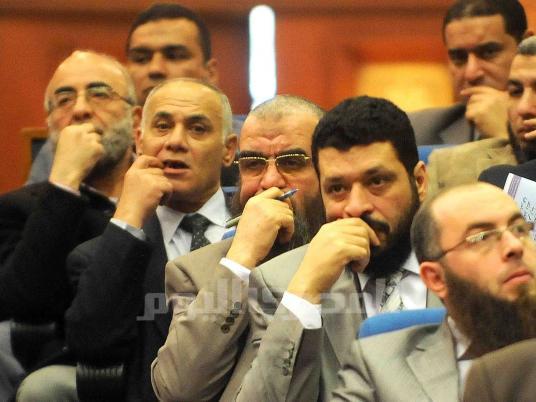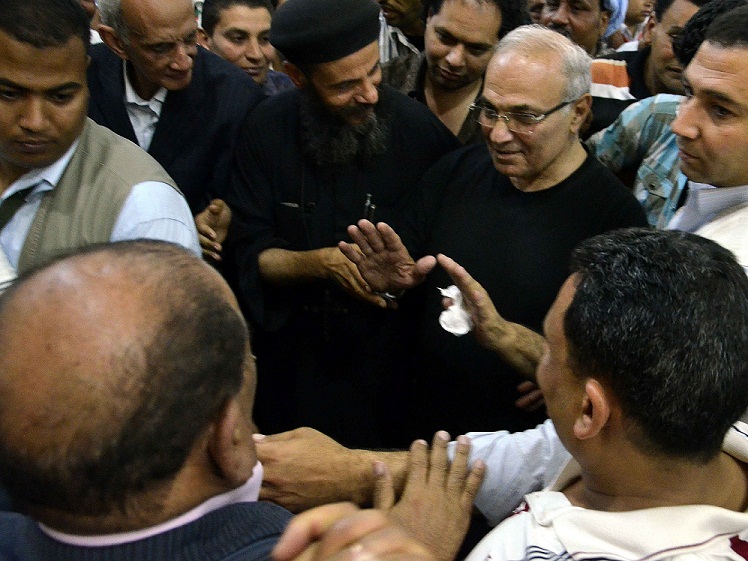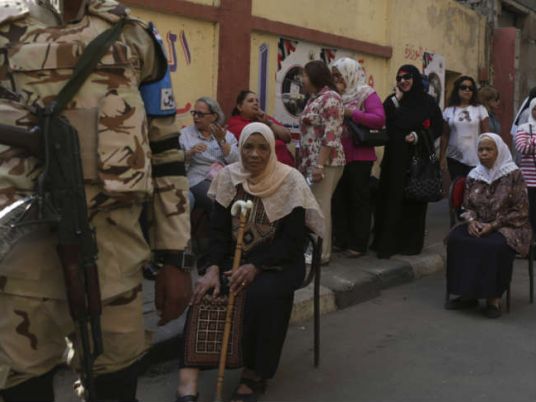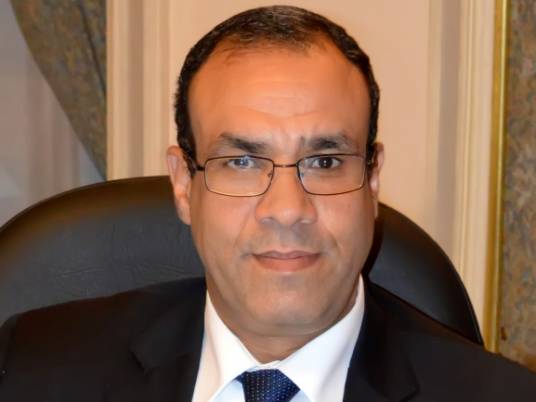
Parliament reconvened on Sunday after a week-long suspension of its sessions due to a dispute between the Muslim Brotherhood (which holds the highest number of seats) and the ruling Supreme Council of the Armed Forces over the fate of the cabinet. The violent clashes in Abbaseyya had taken place during that week of suspension.
After spending Sunday’s session lashing out at each other and blaming different sides for the violence, MPs used the rest of the week to resolve several important items of legislation and settle the cabinet issue.
Early in the week, Parliamentary Speaker Saad al-Katatny announced that the military rulers had promised him an imminent cabinet reshuffle. On Monday, the Parliament agreed to postpone a scheduled cabinet interrogation and some MPs told the media that it had agreed not to escalate the crisis amid negotiations with the SCAF.
After SCAF head Field Marshal Hussein Tantawi met with a parliamentary delegation, a limited reshuffle of three ministers was announced on Thursday.
It was also a week of legislation.
On Sunday the Parliament passed a law that makes the thanaweya amma, the high school years in which students' final grades determine the public colleges they can apply to, one year instead of two.
A more controversial law was passed on the same day with amendments to the military trials law. Three months in the making, the amended law, proposed by SCAF member Mamdouh Shaheen, took away the right of the president to refer civilians to military trials but maintained the exclusive right of the military judiciary to determine its own jurisdiction. Many human rights activists and organizations criticized the amendments as insufficient.
A law passed in the Parliament on Monday started up a new animosity between it and the Presidential Elections Commission (PEC).
In an attempt to balance out Article 28 of the Presidential Elections Law, which prohibits appealing the PEC’s decisions, the law prohibits appointing the PEC judges to any executive or legislative position until the end of the elected president’s term.
Members of the commission said the law questions their integrity and issued a statement the next day threatening to suspend their activities and demanding the military council respond to this "insult."
The Constitutional and Legislative Affairs Committee passed a law that increases the penalty for torture. According to the new law, participating, carrying out, assisting or instigating torture is punishable by five years in prison. The law also states that if the victim dies the torturer will be prosecuted for murder, and that witnesses to torture who fail to report it are to be punished with a one-year sentence.
A special committee has also finished drafting a police law that improves the rights of police force members.
The Constitutional and Legislative Affairs Committee also discussed on Sunday a law to pardon toppled president Hosni Mubarak’s political prisoners, but got stuck determining the definition of a political charge.
Parliament also granted a law that diminishes its own powers an initial agreement and returned it to the Constitutional and Legislative Affairs Committee for further amendments. The law states that complaints over the validity of MPs' membership are to be seen by the appeals’ court and not by the Parliament itself, as is the case now.
The phrase “The Parliament is its own master” has become infamous for its use by the formerly ruling National Democratic Party which used this principle to prohibit the expulsion of its members, who often gained membership by elections rigging, and to exclude opposition members without fear of judiciary interference.
A law proposed by Salafi MP Ali Katamesh to limit the powers of Al-Azhar stirred disapproval from the members of the largest Sunni institution in the region. The law proposes removing the article that states that Al-Azhar is the final judge on religious matters, and proposes that its grand sheikh be elected rather than appointed.
Parliament is expected to start a discussion of the judiciary law next week by hearing various figures including the head of the Supreme Judicial Council and the Judges’ Club. The new law is said to aim to grant the judiciary more independence from the executive branch.
With an Islamic majority in the Parliament, a weekly Islamic dose is inevitable. A law was passed that increases the punishment for printing the Quran with false content to 10 to 15 years. The law also states that unlicensed printing of the Quran is punishable by a LE100,000 – 200,000 fine.
An MP suggested to the Economic Affairs Committee the use of Islamic banking in all Egypt’s banks, but the suggestion was rejected by the government's representative in the meeting, who said it would harm the economy.
This week’s parliamentary Youtube moment occurred when MP Tarek Morsy stood up holding a game imported from China. He said it produces sounds that insult one of Prophet Mohamed’s wives. Katatny referred the MP’s request to the Economic Affairs Committee, considering it an import issue.




